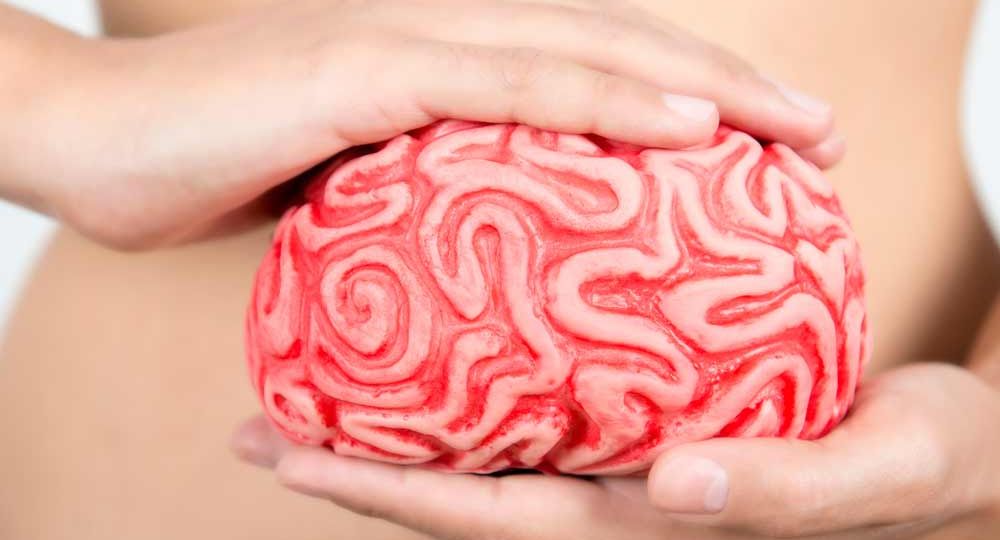
If your gut and what you put into it is often an afterthought you may be surprised to learn that your digestive system is literally your second brain, which has the power to influence your mood, mind, and behavior. As such, nourishing your gut flora through nutrition becomes significant, because both brains—the one inside your head and the one in your abdomen each has its own essential needs.
Your brain and your gut work together in a synchronistic dance; your central nervous system (brain) is connected to your enteric nervous system (gut) via the vagus nerve. And as it turns out, the greatest concentration of serotonin, the all-important feel-good neurotransmitter that factors heavily into mood, lives in your second brain, not your “first”! This may account for the fact that researchers keep finding a link between an imbalance of gut bacteria and depression.
Here’s another shocker: 100 trillion bacteria take up residence in your body. That’s more than 10 times the number of cells in your entire body! Ideally, the ratio between the bacteria in your gut is 85% “good” and 15% “bad.” Nourishing your gut flora gives you the best opportunity to optimize serotonin production and protect your mental health. Evidence also shows that probiotics have another extremely positive benefit: they can aid gene expression so they act out in a positive, disease-fighting manner. Try incorporating sauerkraut or Kombucha to your diet. I personally favor the Kevita brand. You can both at your local grocery store or Amazon Fresh: http://amzn.to/2fhR31F (Kombucha), http://amzn.to/2ghX5U4 (Sauerkraut)
Good vs. Bad
Your gut bacteria are especially vulnerable to your lifestyle; for instance, if you eat a lot of processed foods, your gut bacteria will suffer because in general processed foods destroy good microflora and feed bad bacteria and yeast. A lack of beneficial bacteria can present in your body as gas, bloating, bad breath, constipation, diarrhea, intestinal toxicity, poor absorption of nutrients, yeast infections, thrush, toe fungus, dandruff, eczema, and psoriasis.
Your gut bacteria is also very sensitive to the following:
• Alcohol
• Antibiotics
• Antibacterial soap
• Agricultural chemicals
• Birth control pills
• Chlorinated water
• Flouride
• Pollution
• Stress
Unless you’re living in a bubble, at some point you’ve been exposed to many of these, so taking a high-quality probiotic (ideally enteric coated so the bacteria makes it past harsh stomach acid, which can kill them), or eating traditional non-pasteurized fermented foods (the high heat of pasteurization kills ALL good bacteria) will help to boost good bacteria production in your gut so your body can thrive and your mood remains stable. If you suffer from chronic stress, probiotics can also help you rebuild important B vitamins.
______________________
Resources
The Second Brain: A Groundbreaking New Understanding of Nervous Disorders of the Stomach and Intestine by Michael Gershon
http://amzn.to/2giqLRD
TED Talk: The Brain in Your Gut — http://www.ted.com/talks/heribert_watzke_the_brain_in_your_gut.html
“Making Sauerkraut Is Easy!” — http://www.wildfermentation.com/resources.php?page=sauerkraut
______________________

